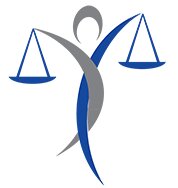Best Auto Dealer Fraud Lawyers in Trinidad and Tobago
Share your needs with us, get contacted by law firms.
Free. Takes 2 min.
Or refine your search by selecting a city:
List of the best lawyers in Trinidad and Tobago
About Auto Dealer Fraud Law in Trinidad and Tobago
Auto dealer fraud occurs when a car dealership employs deceptive practices to mislead consumers into making a purchase. This fraud can manifest in various ways, such as misleading advertisements, selling previously damaged vehicles as new, or failing to disclose important information about a vehicle's condition. In Trinidad and Tobago, consumer protection laws are in place to safeguard buyers from such dishonest practices; however, navigating these laws can be complex for those unfamiliar with legal terminologies and processes.
Why You May Need a Lawyer
There are several situations where individuals might require legal assistance in matters of auto dealer fraud:
- Misrepresentation: If a dealer has provided inaccurate information about a vehicle's history or condition, which materially affects your decision to purchase.
- Undisclosed Damage: When a purchased vehicle has significant damage that was not disclosed at the time of sale.
- Odometer Fraud: If the mileage on the vehicle has been tampered with, misleading the buyer about the car's usage and value.
- False Promises: Situations where dealers fail to deliver on promises, such as warranties or free services that were part of the purchase agreement.
- Contractual Disputes: Issues arising from unclear or deceitful contract terms which the seller refuses to honor.
In these cases, a lawyer specializing in consumer protection and auto dealer fraud can provide invaluable guidance and representation.
Local Laws Overview
In Trinidad and Tobago, consumer rights are protected under the provisions of the Consumer Protection and Safety Act. This legislation aims to prevent unfair market practices and to promote fair trading among businesses and consumers. Key aspects that are relevant to auto dealer fraud include:
- The obligation for businesses to provide accurate and truthful advertising concerning their products.
- Requirements for sellers to disclose all relevant information about the vehicle, including its history and condition.
- Provisions for consumers to seek redress for deceptive or unfair practices through the courts.
- The role of the Consumer Affairs Division in investigating and addressing consumer complaints.
These laws are designed to protect consumers from unscrupulous practices and ensure that any disputes can be fairly resolved.
Frequently Asked Questions
1. What is the definition of auto dealer fraud?
Auto dealer fraud refers to deceptive practices conducted by car dealerships that mislead consumers, such as false advertising, odometer rollback, and undisclosed vehicle damage.
2. What should I do if I suspect auto dealer fraud?
If you suspect fraud, gather all pertinent documents, such as contracts and communication records, and consult with a legal professional to assess your options.
3. Are there legal protections for consumers against auto dealer fraud in Trinidad and Tobago?
Yes, the Consumer Protection and Safety Act provides legal frameworks designed to protect consumers from fraud and unfair practices by businesses.
4. Can I get a refund if I discover the car I purchased was involved in a serious accident that wasn't disclosed?
It depends on the circumstances, but you may be entitled to a refund or other compensatory remedies if there has been a material misrepresentation.
5. How long do I have to take legal action against a dealership for fraud?
Legal timelines, known as statutes of limitations, can vary, so consulting a lawyer as soon as possible is advisable to understand specific deadlines related to your case.
6. What role does the Consumer Affairs Division play in addressing fraud?
The Consumer Affairs Division investigates consumer complaints, mediates disputes, and provides guidance on consumer rights and protections under the law.
7. Can a lawyer help me even if I don't want to go to court?
Yes, lawyers can assist in negotiating settlements or mediating disputes to potentially resolve issues without court litigation.
8. Is misrepresenting a car's mileage common, and what can I do about it?
Odometer fraud is an issue in some cases. If you suspect tampering, legal advice can help you address the matter and seek compensation.
9. What costs are associated with hiring a lawyer for auto dealer fraud cases?
Costs vary by case complexity and lawyer experience, but an initial consultation can provide clarity on potential legal fees.
10. Can I file a complaint with the dealership before seeking legal action?
Yes, it is often recommended to first contact the dealership to resolve the issue. Document all communications as this may be useful if legal action is necessary later.
Additional Resources
Here are some resources and organizations that can provide additional assistance:
- Consumer Affairs Division: Offers guidance, support, and can handle complaints related to consumer rights violations.
- The Law Society of Trinidad and Tobago: Can help individuals find legal representation specializing in consumer protection and fraud cases.
- Ombudsman of Trinidad and Tobago: Can address and investigate public complaints against unfair practices.
Next Steps
If you believe you have been a victim of auto dealer fraud, consider the following steps:
- Gather all relevant documentation, including purchase agreements, communication records, and any advertisements related to your vehicle purchase.
- Contact the car dealership to discuss your concerns and try to reach an amicable resolution.
- If the issue remains unresolved, seek legal advice from a lawyer experienced in consumer protection laws.
- Consider filing a formal complaint with the Consumer Affairs Division for investigation.
By taking these proactive steps, you can better protect your interests and work towards a satisfactory resolution.
Lawzana helps you find the best lawyers and law firms in Trinidad and Tobago through a curated and pre-screened list of qualified legal professionals. Our platform offers rankings and detailed profiles of attorneys and law firms, allowing you to compare based on practice areas, including Auto Dealer Fraud, experience, and client feedback.
Each profile includes a description of the firm's areas of practice, client reviews, team members and partners, year of establishment, spoken languages, office locations, contact information, social media presence, and any published articles or resources. Most firms on our platform speak English and are experienced in both local and international legal matters.
Get a quote from top-rated law firms in Trinidad and Tobago — quickly, securely, and without unnecessary hassle.
Disclaimer:
The information provided on this page is for general informational purposes only and does not constitute legal advice. While we strive to ensure the accuracy and relevance of the content, legal information may change over time, and interpretations of the law can vary. You should always consult with a qualified legal professional for advice specific to your situation.
We disclaim all liability for actions taken or not taken based on the content of this page. If you believe any information is incorrect or outdated, please contact us, and we will review and update it where appropriate.
Browse auto dealer fraud law firms by city in Trinidad and Tobago
Refine your search by selecting a city.










